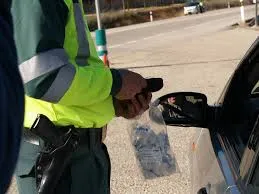Key Facts on Traffic Violations in New Jersey”

New Jersey’s roads can be bustling, hectic, and prone to traffic congestion. With so many drivers on the move, traffic violations are bound to occur. While minor infractions may seem inconsequential, they can stack up over time and impact everything from your insurance rates to your driving privileges. In this blog, we’ll explore the key facts every driver should know to stay safe, avoid penalties, and handle tickets efficiently.
1. The Most Common Traffic Violations
Though the state has a long list of traffic violations, some are more frequent:
- Speeding: Despite posted limits, many drivers exceed the speed limit, especially on major highways.
- Distracted Driving: Texting or making calls behind the wheel is a ticket magnet.
- Improper Turns and Lane Changes: Failing to signal or turning from the wrong lane is another frequent infraction.
- Running Red Lights and Stop Signs: These violations can be especially dangerous in busy intersections.
Staying mindful of these common pitfalls is your first step to avoiding citations.
2. Points and Their Impact
New Jersey uses a point system to track driving habits. Each moving violation adds a predetermined number of points to your license. Accumulate too many, and you risk:
- Insurance Rate Hikes: More points often mean higher premiums.
- State Surcharges: Once you hit 6 points in three years, annual surcharges apply.
- License Suspension: At 12 points, you could lose your driving privileges.
If you’re nearing the point limit, a defensive driving course could help you remove a few points and restore your record to a safer zone.
3. Handling a Traffic Ticket
When you’re ticketed in New Jersey, you’ll see instructions on how to plead guilty or not guilty. The key steps include:
- Paying the Fine: If you opt to plead guilty, you can pay by mail, in person, or online (if applicable).
- Court Appearance: Some violations require a mandatory court appearance. You can’t just pay the fine and forget about it.
- Disputing the Ticket: If you believe the ticket is unjust, you can request a court hearing to present your side of the story.
Failing to respond to a ticket can result in heavier fines, license suspension, and even arrest warrants.
4. Surcharges Explained
Beyond the initial ticket fine, you may be subject to additional state-imposed surcharges. These typically apply if:
- You accumulate 6 or more points in a three-year period.
- You commit specific violations, such as driving under the influence (DUI) or driving without insurance.
These surcharges can last several years, making it essential to address points and violations as soon as possible.
5. Staying Updated on Online Payment Options
Today, many people prefer the convenience of paying fines online. If you’re looking into official channels, you might come across references like njmcdirect www njmcdirect com ticket payment online, www-njmcdirects.us, or njmc direct. These platforms can streamline the payment process, saving you a trip to the courthouse. Always ensure you’re on an official or verified site to protect your personal information and pay the correct amount.
6. Defensive Driving and Courses
Defensive driving is more than just a catchphrase; it’s a strategy for preventing accidents and avoiding violations. New Jersey also offers defensive driving courses that can remove up to 2 points from your record. These courses:
- Teach Safe Driving Techniques: You’ll learn how to handle road hazards, aggressive drivers, and inclement weather.
- May Lower Insurance Rates: Some insurers offer discounts to drivers who successfully complete a course.
- Are Available Online: If your schedule is hectic, you can often find state-approved online classes.
Completing a course can be a game-changer if you’re close to facing license suspension.
7. Legal Assistance: When Do You Need It?
Most traffic violations can be resolved by simply paying the fine and accepting the points. However, more serious circumstances might call for an attorney:
- Major Violations: DUIs, reckless driving, or driving with a suspended license can carry severe penalties.
- Multiple Offenses: If you already have points on your license or face a potential suspension, professional advice can be invaluable.
- Unclear Situations: Sometimes, you might believe the officer made a mistake or there were mitigating circumstances. A lawyer can help present your case effectively.
8. Proactive Measures for a Clean Record
The best approach to dealing with traffic violations is not getting them in the first place. Consider these proactive measures:
- Regular Vehicle Maintenance: Faulty headlights, broken mirrors, or missing license plates can get you pulled over.
- Plan Your Routes: Knowing where speed traps and busy intersections are can help you stay vigilant.
- Minimize Distractions: Keep your phone out of reach, and focus on the road.
- Stay Calm: Aggressive driving often leads to mistakes like tailgating, illegal passing, and speeding.
Conclusion
New Jersey’s roads come with their share of challenges, but understanding the key facts about traffic violations can help you navigate them safely and responsibly. Points, surcharges, and potential license suspensions all loom as possible outcomes of repeated or serious violations. By staying informed, practicing defensive driving, and taking advantage of resources like official online payment portals, you can handle traffic tickets with minimal stress.
Most importantly, remember that prevention is always better than cure. Adhering to speed limits, avoiding distractions, and regularly updating your vehicle’s maintenance can go a long way toward keeping your record clean. And if you do find yourself on the receiving end of a violation, address it promptly. The quicker you resolve the issue—whether by paying the fine or disputing the ticket in court—the less chance it has to escalate into a bigger problem.
Keeping these key facts in mind will help you stay safe on the road, protect your driving privileges, and maintain lower insurance rates. Safe travels!




